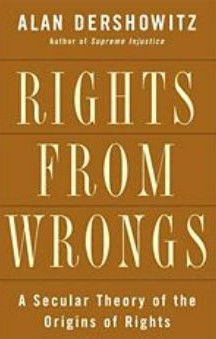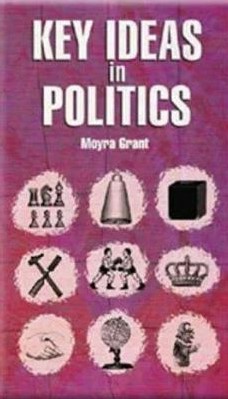Politics: Science or Art? The Political Science Collection at the Lee Kong Chian Reference Library
The Political Science Collection is a starting ground for the concerned citizen to learn about the basic concepts in politics, and if need be, delve into certain topics in greater depth. The collection offers a complete spectrum covering the major areas in political science.
Singaporeans have been accused of being apathetic when it comes to politics, often taking for granted the political stability found in the country. Many believe that politics does not concern them at all, and only cast the occasional vote during the elections. The general belief is that only politicians need to be concerned about it. Some even think of politics as a dirty word, equating it with power struggle and corruption.
However, is that all there is to politics? Closer examination reveals that politics concerns everyone and anyone who is impacted by the political process. Can anybody truly say that topics like the system of government, the powers of the government, or government policy setting, do not concern them at all? It is therefore important for ordinary citizens to have a basic idea of what politics is, and its impact on their lives. This article therefore aims to introduce readers to the Political Science Collection found at the Lee Kong Chian Reference Library, and what kind of information is contained there.
The Political Science Collection at the Lee Kong Chian Reference Library, Level 7 hopes to become a starting ground for the concerned citizen to learn about the basic concepts in politics, and if need be, delve into certain topics in greater depth. To this end, the collection offers a complete spectrum covering the major areas in political science, which I will introduce below.
The main focus of the collection is on international relations, as Singapore is a country with no natural resources, and cultivating cordial international relations with other countries is one of its top priorities. Although a small country, Singapore has been active in the international scene, often acting with other Southeast Asian states through The Association of Southeast Asian Nations (ASEAN), and most recently in providing aid to disaster victims, such as the December 2004 Indian Ocean tsunami.
The scope of international relations is very wide, and covers issues such as the diplomatic-strategic relations of states, war and peace, conflict and cooperation. Books in the Lee Kong Chian Reference Library cover the complete spectrum of international relations topics, and include foreign policy, diplomacy, and foreign relations of specific continents and localities, including Singapore. Books on the subject provide an understanding to what international relations is, and how nations and regions have managed peace and conflict over the years. Other books in the collection cover world politics and world order, and international relations between different countries and regions.
Another important focus of the collection is books covering political situation and conditions. Books in this collection look at the types of government, ideologies, which are practiced in different regions of the world. Available also in the collection are titles that compare the level of democracy which different states had achieved, including Singapore.
In addition, the collection includes books on civil and political rights, which have become more significant in the post-9/11 period, as America’s War Against Terrorism wages on. Titles in this collection discuss the theories and origin of human rights, and include materials published by the United Nations (UN) for imparting knowledge of various human rights to students from around the world. Such rights, as in the Universal Declaration of Human Rights, include the right to life, liberty and security of person, education, etc.
Other books are on the political process, such as those describing the political processes in different regions of the world, including Asia. Topics may include political oppositions in Asia, including China, and how the new technology and communication channels such as the Internet, are changing the political process.
The collection also deals with different political ideologies, such as anarchism, capitalism, communism, and nationalism, etc. These may be high-sounding words. However, publications will explain these ideas in simple terms, allowing even the layperson to understand them. Related to this are books covering systems of governments and states. Books here describe the systems of governments adopted by countries around the world, the concept of statehood, and how states are organised.
Another interesting area in the collection is international migration and colonisation. According to the World Migration 2005, an estimated 175 million persons currently reside outside the country of their birth. Some countries are also receiving refugees escaping from civil wars, political persecution, or other reasons. The topic is also of particular interest to Singaporeans, some of whom are debating whether to stay in Singapore, or to experience alternative lifestyles overseas. Colonisation and decolonisation are interesting topics too, with Singapore being a former British colony. There are books detailing the colonisation and decolonisation of countries, including Singapore and the Southeast Asian region.
In addition, we have a collection of yearbooks and periodicals, which provide more current reports on the political situation in different countries and regions. A small collection of CD-ROMs and various social sciences electronic database are also available for use in the Library Staff on duty at the Information Counter will be able to answer enquiries on the collection or on certain areas in political science. Reference Point, a remote enquiry service accessible by email, mail, fax or telephone, is also available to library patrons who require information on the collection. Examples of interesting enquiries answered previously include the political situation in Myanmar and its efforts at globalisation, and the inquiry into countries not in possession of any war weapons.
Indeed, there are many treasures to be found in the Political Science Collection at the Lee Kong Chian Reference Library. Do visit the collection and discover the exciting world of politics.
 Chris Brown’s Understanding International Relations introduces the subject of international relations in a concise yet broad-ranging manner, with a focus on events of the 20th century. All Rights Reserved, Basingstoke/ Palgrave, 2001.
Chris Brown’s Understanding International Relations introduces the subject of international relations in a concise yet broad-ranging manner, with a focus on events of the 20th century. All Rights Reserved, Basingstoke/ Palgrave, 2001. Alan Dershowitz’s Rights From Wrongs offers fresh insights on the question of where our rights come from, and discusses several controversies surrounding different rights. All Rights Reserved, Basic Books, 2004.
Alan Dershowitz’s Rights From Wrongs offers fresh insights on the question of where our rights come from, and discusses several controversies surrounding different rights. All Rights Reserved, Basic Books, 2004. Moyra Granta’s Key Ideas in Politics explains different political theories and philosophies in a clear and concise manner. All Rights Reserved, Nelson Thornes, 2003.
Moyra Granta’s Key Ideas in Politics explains different political theories and philosophies in a clear and concise manner. All Rights Reserved, Nelson Thornes, 2003.
 World Migration Report provides a geographic, thematic and statistical update of global migration today. All Rights Reserved, International Organization for Migration/ United Nations, 2005.
World Migration Report provides a geographic, thematic and statistical update of global migration today. All Rights Reserved, International Organization for Migration/ United Nations, 2005.
Reference Librarian
Lee Kong Chian Reference Library
FURTHER READING
American Political Science Association, Perspectives On Politics (Call no. R 320.05 PP)
A quarterly periodical, Perspectives on Politics, contains articles providing political insight on important problems, review essays on selected topics, and book reviews.
R. K. Gibson, P. G. Nixon and S. J. Ward, eds., Political Parties and the Internet: Net Gain? (New York: Routledge, 2003)
The book describes how the Internet can engage the public in politics, and how political parties are using it as a communication tool.
Tatu Vanhanen, Prospects of Democracy: A Study of 172 Countries (New York: Routledge, 1997). (Call no. RCLOS 320.9 VAN)
The publication contains an interesting comparative analysis of the levels of democratization of 172 states, including Singapore.
Walter C. Opello, Jr., and Stephen J. Rosow, The Nation-state and Global Order: A Historical Introduction to Contemporary Politics (Colo: Lynne Rienner Publishers, 2004). (Call no. R 321.009 OPE)
The publication describes the concept of the State, and how it has changed over time. Taking a historical approach to the state and global order, the book discusses the emergence of the territorial state. It also examines challenges to the state and questions if there is a need for a new world order.

